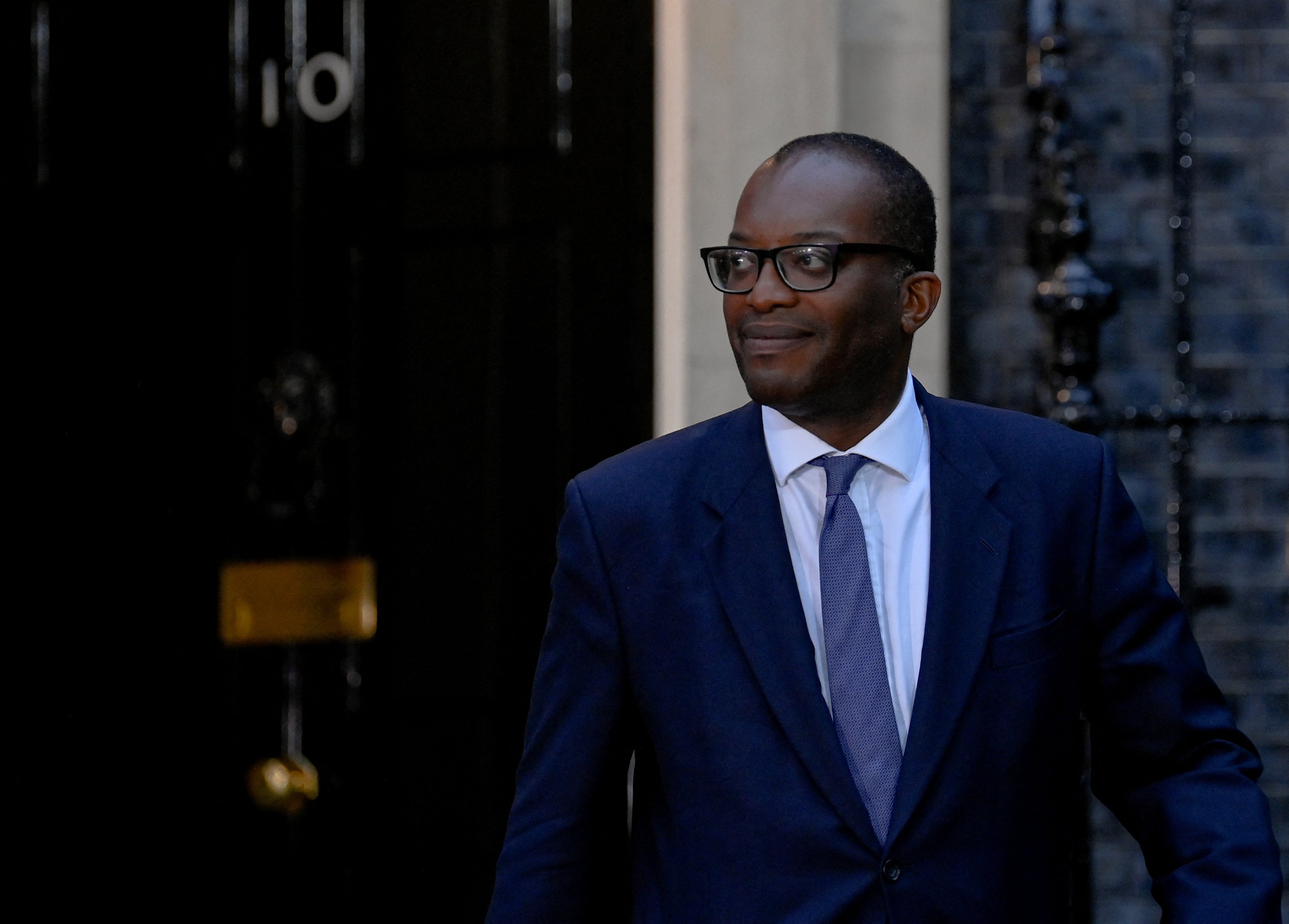Kwasi Kwarteng is dispensing with ‘experts’ for next week’s mini-Budget
The chancellor will be doing the equivalent of trying to land a plane in fog having turned off the radar, writes John Rentoul


Kwasi Kwarteng, the chancellor, is going to deliver a financial statement in parliament next week, squeezed between the Queen’s funeral and the Labour Party conference. His people say it will be “limited in scope”, repeating the plan to freeze energy prices announced by the prime minister last week and announcing the tax cuts that she promised during the Conservative leadership campaign.
It will be a statement of self-belief by our new government, because Kwarteng has sacked Sir Tom Scholar, the top Treasury civil servant, and he has refused to ask the independent Office for Budget Responsibility (OBR) for its forecasts of the economy and the effect of the new policies on it.
Sir Tom was popular in the Treasury and experienced; his abrupt departure has provoked outrage from the mandarin class. Lord Macpherson and Lord O’Donnell, his predecessors, have protested. Even if civil servants are out of tune with a new government, they are usually given a little time to be put to the test.
But in this case, it is unclear what Sir Tom is out of tune with. Liz Truss’s leadership campaign rhetoric against “Treasury orthodoxy” never actually spelt out what she thought that orthodoxy was. Sometimes it seemed to be the Treasury’s alleged obsession with balancing the books; and at other times, it was the Treasury’s more recent devotion to “Gordon Brown economics”, of using public spending to keep people in jobs after an economic shock.
Given that the second is precisely what Truss and Kwarteng propose to do, it must be the first, which has not been Treasury orthodoxy for 80 years, except in George Osborne’s time, so perhaps this is just an internal Tory civil war.
It may be that Kwarteng doesn’t mean anything by it at all. Yesterday, he addressed all Treasury officials on a conference call, praised Sir Tom’s record and said the Treasury had been an “excellent finance ministry”. Perhaps Sir Tom’s departure is a pointless sacrifice designed to satisfy the gods of grassroots Toryism, just as Kwarteng’s instruction to the Treasury that it must “do things differently” and focus “entirely on growth” are empty words designed to give the impression of a fresh start.
Certainly, there must be Treasury officials who, after that conference call, were smacking their foreheads and exclaiming: “Of course! We should focus on growth. Why has nobody thought of that before?”
Sacking its popular, impartial leader and being rude about its “orthodoxy” doesn’t seem to be a good way to get the best out of an organisation, but Treasury officials are professional enough to get on with the job – which does of course include such boring things as making the sums add up and trying to make sure that public spending is value for money.
But Kwarteng will be doing the equivalent next week of trying to land a plane in fog having turned off the radar, because he refused to ask the OBR for its forecasts. This was despite Richard Hughes, its chair, saying before the end of the Tory leadership contest that it was doing the preparatory work that would allow it to produce a full forecast on “14 or 21 September”.
Kwarteng ignored him, prompting the Financial Times to observe acidly: “Despite having by law to publish two OBR forecasts each financial year, it has yet to be confirmed that ministers will seek an official forecast from the body this autumn.”
To keep up to speed with all the latest opinions and comment, sign up to our free weekly Voices Dispatches newsletter by clicking here
That means there will be no independent backing for any estimates that the Treasury will produce, and which Kwarteng will announce, for the cost of the government’s energy price plan.
What makes this more incomprehensible is that the Truss-Kwarteng plan may well be the right policy for the wrong reasons. Even Paul Johnson, director of the Institute for Fiscal Studies (IFS), who has been fiercely critical of Truss’s “fairytale” economics, accepted yesterday that the price freeze “might be necessary this year”, although it is “incredibly expensive”.
What is important about next week’s statement – apart from the detail on how businesses, public bodies and charities are going to have their energy bills supported – is what Kwarteng says about what will happen next. How long will this untargeted approach, which “gives large amounts of money to people who don’t need it”, in Paul Johnson’s words, last? And how will the permanent loss of revenue from “reversing” the national insurance rise and cancelling the corporation tax increase be sustained?
So far, Kwarteng’s answer is to set a target for the economy to grow by 2.5 per cent a year and to refuse to hear from anybody who might tell him that this is pie in the sky.






Join our commenting forum
Join thought-provoking conversations, follow other Independent readers and see their replies
Comments